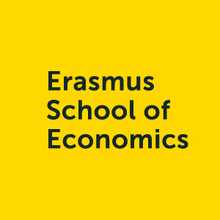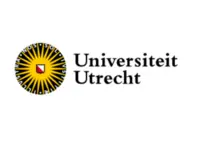Phd candidate
On-Site
ID job: 1641
OPEN
Silvana de Sanctis
Are you interested in conducting research on the role of students’ non-cognitive skills in (un)successful educational careers? The Department of Macro, International and Labour Economics (MILE) at the School of Business and Economics (SBE) of Maastricht University offers a 4-year PhD position, starting February 1, 2025.
Job Description
We are looking for a candidate who has interest in working on a European research project that focuses on the analysis of student’s transitions within education and from education to the labour market, and in particular the role of non-cognitive skills therein. Given the high number of dropouts and the growing inequalities, it appears that European education systems still fail to provide inclusive education and equal opportunities for effective educational transitions. The COVID-19 crisis has heightened the complexities of transitions between education and the job market, particularly for marginalized youth. There is a risk of exacerbating inequalities, and without targeted measures in education and training policies and investments, these disparities may persist. To support the development of effective policies, a thorough understanding is needed of the multifaceted nature of unsuccessful transitions from education to the labour market. The project will focus on the analysis of role of non-cognitive skills and competencies such as motivation, school attitude, personality characteristics (e.g., perseverance, conscientiousness), sense of belonging, or critical and creative thinking skills. The main focus is on transitions to upper secondary and tertiary education as well as to the labour market, yet data will be used as of primary education to get insights in early predictors of (un)successful transitions. To this end, unique large-scale data sets from the Netherlands are used (e.g., national and regional cohort data).
More specific, topics addressed in the research are:
- Identification of early cognitive and non-cognitive predictors of early school leaving.
- Determination of the role of complex family composition on participation and completion rates.
- Identification of the impact of COVID-19 on pathways from secondary education to VET and into the labour market.
- Estimation of the impact of school closures on the prevalence of fractured educational careers, grade retention and early school leaving.
- Improvement of our understanding of the mechanisms behind young individuals Not in Employment, Education, or Training.
The project is part of a European consortium which means that you will also collaborate with researchers from other European universities (e.g., Belgium, Estonia, Italy, United Kingdom). You will work at the department of Macro, International and Labour Economics (MILE) and the Research Centre for Education and the Labour Market (ROA) at the School of Business and Economics of Maastricht University, the Netherlands.
Requirements
We are looking for you if you have successfully completed a – preferably 2-year (120 ECTS) – Master’s degree (MSc or MPhil) in (Quantitative) Economics, Econometrics, Sociology, Educational Research, or a related area (before February 2025).
Next to this you:
- have an excellent command of English;
- have a record of high academic achievement (e.g., good grades and/or involvement in other academic activities) and the skills required to become an excellent researcher;
- are self-motivated, curious and interested in high quality policy-relevant research.
What we offer
As a PhD candidate at the School of Business and Economics, you will be employed by the most international university in the Netherlands, located in the beautiful city of Maastricht. In addition, we offer you:
- Good employment conditions. The position is graded according to UFO profile PhD, with corresponding salary based on experience ranging from €2901,00 in the first year and €3707,00 gross per month in the fourth year (based on a full-time employment of 38 hours per week). In addition to the monthly salary, an 8.0% holiday allowance and an 8.3% year-end bonus apply.
- An employment contract for a period of 18 months with a scope of 1.0 FTE. Upon a positive evaluation, an extension of 2.5 years will follow.
- At Maastricht University, the well-being of our employees is of utmost importance, we offer flexible working hours and the possibility to work partly from home if the nature of your position allows it. You will receive a monthly commuting and internet allowance for this. If you work full-time, you will be entitled to 29 vacation days and 4 additional public holidays per year, namely carnival Monday, carnival Tuesday, Good Friday, and Liberation Day. If you choose to accumulate compensation hours, an additional 12 days will be added. Furthermore, you can personalize your employment conditions through a collective labor agreement (CAO) choice model.
- As Maastricht University, we offer various other excellent secondary employment conditions. These include a good pension scheme with the ABP and the opportunity for UM employees to participate in company fitness and make use of the extensive sports facilities that we also offer to our students.
- Last but certainly not least, we provide the space and facilities for your personal and professional development. We facilitate this by offering a wide range of training programs and supporting various well-established initiatives such as 'acknowledge and appreciate'.
The terms of employment at Maastricht University are largely set out in the collective labor agreement of Dutch Universities. In addition, local provisions specific to UM apply. For more information, click here.
Maastricht University
Why work at Maastricht University?
At Maastricht University (UM), everything revolves around the future. The future of our students, as we work to equip them with a solid, broad-based foundation for the rest of their lives. And the future of society, as we seek solutions through our research to issues from all around the world. Our six faculties combined provide a comprehensive package of study programmes and research.
In our teaching, we use the Problem-Based Learning (PBL) method. Students work in small groups, looking for solutions to problems themselves. By discussing issues and working together to draw conclusions, formulate answers and present them to their peers, students develop essential skills for their future careers.
With over 22,300 students and more than 5,000 employees from all over the world, UM is home to a vibrant and inspiring international community.
Are you drawn to an international setting focused on education, science and scholarship? Are you keen to contribute however your skills and qualities allow? Our door is open to you! As a young European university, we value your talent and look forward to creating the future together.
Click here for more information about UM.
The School of Business and Economics
The School of Business and Economics (SBE) is one of Maastricht University’s six faculties. Our mission is to contribute to a better world by addressing societal problems, by co-creating knowledge and developing team players and leaders for the future.
By joining SBE, you will be part of the 1% of business schools worldwide to be Triple Crown accredited (EQUIS, AACSB and AMBA). You will join an inspiring and international environment, where learning and development is priority.
Department of Macro, International and Labour Economics
https://www.maastrichtuniversity.nl/research/department-macro-international-and-labour-economics-mile
Curious?
Are you interested in this exciting position but still have questions? Feel free to contact prof. dr. Trudie Schils at t.schils@maastrichtuniversity.nl or prof. dr. Carla Haelermans at carla.haelemans@maastrichtuniversity.nl for more information. Do you have any questions regarding the procedure, please contact Manon Souren (Recruiter) at manon.souren@maastrichtuniversity.nl of 06-34577732.
Applying?
Or are you already convinced and ready to become our new PhD candidate? Apply now, no later than 15 December 2024, for this position.
Please upload your CV, motivation letter, grade list, contact information of 2 referees, research plan and publication list.
The first interviews preferably take place on week 51, 2024. The second interviews will preferably be held early January 2025.
A reference check will be part of the application procedure.
The vacancy is open for internal and external candidates. In case of equal qualifications, internal candidates will be prioritized.
Maastricht University is committed to promoting and nurturing a diverse and inclusive community. We believe that diversity in our staff and student population contributes to the quality of research and education at UM, and strive to enable this through inclusive policies and innovative projects led by teams of staff and students. We encourage you to apply for this position.
Tongersestraat 53
6211 LM Maastricht , Olanda




